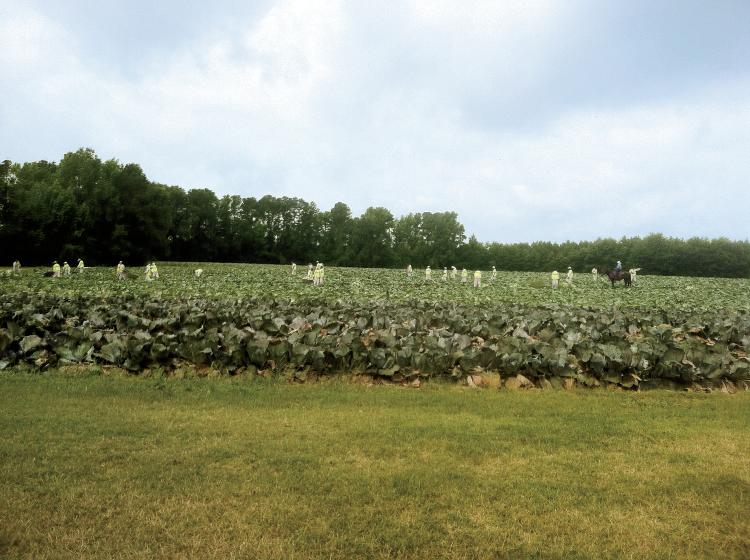Home > Arkansas > Arkansas Farm to Table > Arkansas Gleaning Project Gives to Those in Need
Arkansas Gleaning Project Gives to Those in Need

So many Arkansans struggle to access food that the state ties for the most “food insecure” in the nation. This accentuates the magnitude of the Arkansas Gleaning Project, which collects leftover fruits and vegetables from harvested fields to put produce on the plates of hungry Arkansans.
The project generated a record 1.2 million pounds of donated turnips, strawberries, squash, pecans and more for the state’s hungry in 2012. Nine hundred volunteers including prison inmates, hand-gathered unmarketable produce from nearly 400 acres on seven farms.
The project promises to narrow the gap between need and declining food donations, providing highly nutritious food to boot. A startling one in six Arkansans feel uncertain of where they will eat their next meal, the Arkansas Hunger Relief Alliance reports. By percentage, more residents in Arkansas and Mississippi than in any other states struggle to access enough food for an active, healthy lifestyle, according to a food security report released by the United States Department of Agriculture in 2012.
“We have to be creative to find different sources of food,” says Michelle Shope, director of food sourcing and logistics for the Arkansas Hunger Relief Alliance. “With Arkansas being an agriculture state, we thought it was a great place for the project. We are actually serving as a mentor in gleaning to other food banks in the Feeding America network.”
In 2008, the Arkansas Hunger Relief Alliance partnered with the Society of St. Andrew to found the Arkansas Gleaning Project. Gleaning is the Biblical practice of hand-gathering crops left after harvest. The Alliance distributes the produce to one of six regional food banks or directly to feeding agencies, such as local pantries and shelters.
Amazingly, the project’s cost in 2012 was calculated at only 2.8 cents per pound. Shope credits the accomplishment to volunteers and generous donors. A $30,000 grant from the Arkansas Agriculture Department helped cover annual expenses that reached about $33,000 in 2012, she says.
The project shows potential to grow exponentially. Inmates from the Arkansas Department of Corrections joined the project in 2010 and increased the results nearly three-fold in just a year. The project works with just seven farms, but an important goal is to continue increasing the number of farms that participate. Shope hopes to grow that number significantly in the years to come.
“We want to get to the point in this program that our food banks and our partner agencies are saturated with the fresh produce,” Shope says. “We want to look towards minimally processing and freezing the excess produce so that we can offer it throughout the year.”



